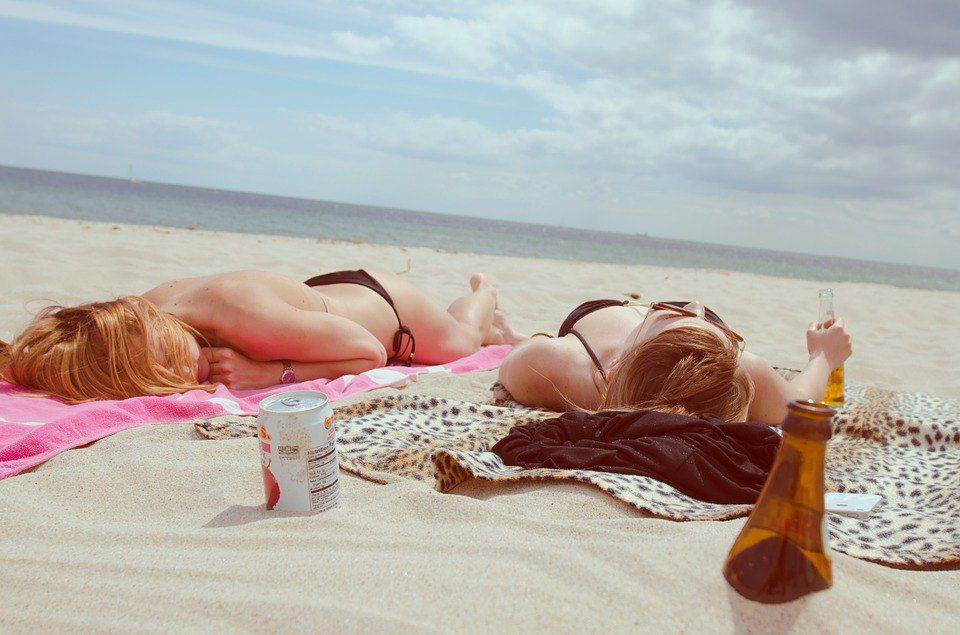
It's always lovely to escape the unpredictable British weather and start catching some sun on holidays in Europe.
While caught up in all the excitement of our European adventure, though, it is easy to forget how to stay safe under the sun, how many rays we are catching, and how they can affect us.
By taking the right precautions, it is less likely we'll need to use our European Health Insurance Cards (EHIC).
No one wants to be stuck in a clinic or hospital instead of making the most of the beautiful weather.
That being said, it is always a good idea to carry your EHIC in case of an emergency.
You can apply by looking up terms such as “E111 Renewal Apply” in your favorite search engine.
Below, our top tips to stay safe under the sun this holiday.
The Basics
The bad news? It only takes 10 minutes for your skin to start to burn. The good news? Sunburn is always preventable.
Avoid being out when the sun is at its highest, typically between 12 and 2 p.m.
Also, make it a habit to wear a hat and sunglasses, as they offer essential protection.
As some people are more susceptible to sunburn than others, the next step is to assess your level of risk.
Essential questions you should ask yourself before sun exposure include:
- Am I fair-skinned?
- Do I have moles or a history of skin cancer?
- Am I taking any medications regularly?
- Do I suffer from skin conditions such as eczema, vitiligo, or psoriasis?
- Am I traveling with babies or children?
If you answered yes to any of these questions, the sun is more likely to affect you or your loved ones adversely.
For this reason, you must take additional precautions in caring for and protecting your skin.
See also: Tips for Backpacking in the Heat
Properly Apply Sunblock and Sunscreen
The best thing to do when buying your sunblock or sunscreen is to choose whichever has the highest factor of protection (SPF)–not necessarily the most expensive.
It may come as a shock to some, but many studies prove that cheaper creams and lotions perform just as well as their brand-name counterparts.
But what does SPF mean? To put it simply, the higher the SPF, the longer you can stay under the sun without having to reapply.
To correctly calculate what level of SPF you'll need, take the lotion's SPF number and multiply it by 10–that's how long your protection will last (in minutes) before your skin starts to burn.
For example, SPF 8 will protect you for 80 minutes.
Also, make sure the product you choose also offers protection against both UVA and UVB rays, as they are equally harmful.
Most importantly, remember to reapply your sunscreen or sunblock after swimming or excessive perspiration.
Waterproof doesn't mean permanent, so those lotions can be washed away after some time as well.
Limit your Alcohol and Caffeine Intake
Alcohol and caffeine dehydrate you, increasing your risk of heat exhaustion or heatstroke.
We know there's nothing better than cold beers by the beach, but take it easy.
Drink less than usually do or forego coffee and alcoholic beverages entirely if you're in a higher risk group.
Also, stay under the shade or limit your time sunbathing if you do plan to drink on a hot day.
See also: 5 Must-Have Items for Female Travelers
When to Get Medical Help
It's essential that you seek medical help immediately if you believe you may be suffering from heat exhaustion or heat stroke.
Both reactions come with a different set of symptoms, though, so watch out for the following:
- Heat exhaustion: persistent headaches, nausea, cramps, sweating, fast pulse with shallow breathing
- Heatstroke: high temperatures, hot dry skin, confusion
It is vital to get medical help as soon as these symptoms start to develop, don't wait!
As heatstroke also causes loss of consciousness, always remember to bring your EHIC along for when you need access to public healthcare.
______
This story was brought to you in partnership with EHIC.
This post was written by a guest contributor. Please reference the author's byline in the post above for more information. If you would like to guest post on Go Backpacking, please read our submission guidelines. For information on advertising opportunities, go here.
Planning a trip? Go Backpacking recommends:
- G Adventures for small group tours.
- Hostelworld for booking hostels.
